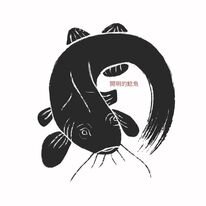Bushmind
Who are the Hadza?
Location: northern Tanzania; "About a thousand Hadza live in their traditional homeland, a broad plain encompassing shallow, salty Lake Eyasi... Genetic testing indicates that they represent one of the primary roots of the human family tree - perhaps more than 100,000 years old."
Language: "not closely related to any other [language] that still exists"
What are the Hadza like?
-"the Hadza do not engage in warfare"
-"they have no known history of famine"
-they do not farm: "they have no crops, no livestock"
-they "remain true hunter-gatherers"
-"the Hadza diet remains even today more stable and varied than that of the most world's citizens"
-they have "no permanent shelters"
-"they enjoy an extraordinary amount of leisure time"
-"they've left hardly more than a footprint on the land"
-they "live almost entirely free of possessions"
-"the things they own - a cooking pot, a water container, an ax - can be wrapped in a blanket and carried over a shoulder"
-"The Hadza cooking style is simple - the meat is placed directly on the fire. No grill, no pan."
-"It is Hadza custom that the hunter who's made the kill does not show off." They understand that "there is a good deal of luck in hunting."
-they do not keep track of time: "they ignore hours and days and weeks and months"
-"Hadza women [...] are independent and powerful, free to marry or divorce at will."
-"There are no wedding ceremonies."
-Most Hadzas are "serial monogamists, changing spouses every few years."
-"Except for breast-feeding infants, it [is] hard to determine which kids [belong] to which parents."
-"the Hadza language doesn't have words for numbers past three or four."
-the Hadza "sleep whenever they want."
-they do not worry about the future: "they live a remarkably present-tense existence"
-"The Hadza are not big on ritual. There is not much room in their lives, it seems, for mysticism, for spirits, for pondering the unknown."
-"There is no specific belief in an afterlife - every Hadza [interviewed] said he had no idea what might happen after he died."
-"There are no Hadza priests or shamans or medicine men."
-"They don't do extended goodbyes. Even when one of their own dies, there is not a lot of fuss. They dig a hole and place the body inside. A generation ago [...] they simply left a body out on the ground to be eaten by hyenas. There is still no Hadza grave marker. There is no funeral."
-"There are no televisions or board games or books. [...] But there is entertainment. The women sing songs. And the men tell campfire stories."
Naturally Civilized Mind
Hadza - in the bush - are: "Free from possessions. Free of most social duties. Free from religious strictures. Free of many family responsibilities. Free from schedules, jobs, bosses, bills, traffic, taxes, laws, news, and money. Free from worry."
Culturally Wild Mind
"More Hadza have moved to [...] Mangola, at the edge of the bush, where, in exchange for money, they demonstrate their hunting skills to tourists. [...] among the Hadza of Mangola there has [...] been a surge in alcoholism, an outbreak of tuberculosis, and a distressing rise in domestic violence, including at least one report of a Hadza man who beat his wife to death."
Time to Think is Time to Hunt
So, what are your thoughts, modern-day bushmind? What's all this telling you, informational hunter-gatherer? Time to gather lessons and to hunt for meaning is now. Always was, always will be.
Resources:
Tinariwen Simplicity in the District of Complexity
Reference:
All quotations are from the wonderful article "The Hadza" by Michael Finkel in the National Geographic (December 2009)
